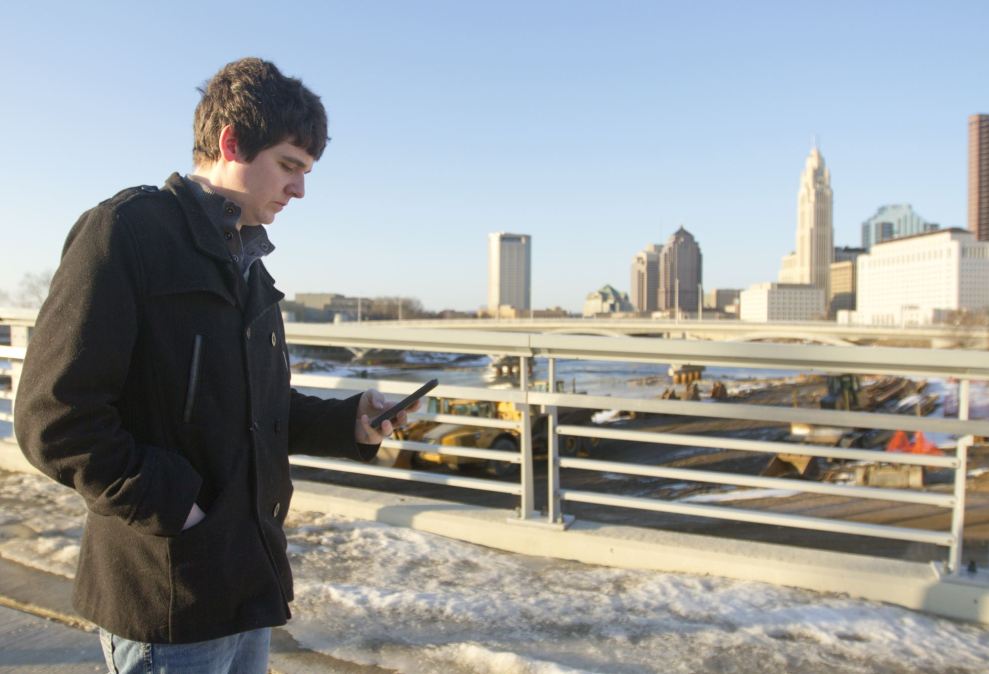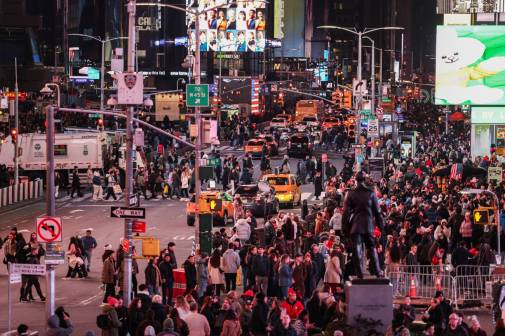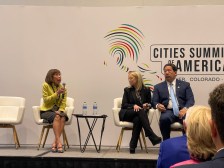Time for federal government to boost smart cities again, tech group says

The federal government was “largely idle” in helping cities across the U.S. develop smart civic technologies under the Trump administration, according to a new report from the Information Technology and Innovation Foundation. But there is an opportunity for Congress and President Joe Biden to jumpstart a new era of research into emerging mobility, energy and artificially-intelligent civic tools.
Since Columbus, Ohio, won a $40 million award from the Transportation Department’s Smart City Challenge program in 2016, Washington has left the research and development of smart city technologies, like connected infrastructure, sensors and 5G-powered devices “without much attention” outside of one-off investments, said Colin Cunliff, an author of the ITIF report.
The Federal Highway Administration last December announced $50 million in grants to fund connected traffic infrastructure solutions for 10 state and local agencies, while the Department of Energy last October launched a $65 million grant program, similar to the 2016 Smart City Challenge program, in an effort to encourage urban areas to reduce their energy consumption.
But one-off challenges, while lucrative for winning cities, aren’t sufficient, Cunliff told StateScoop.
“The [DOT] smart city challenge under the Obama administration was, we think, too small and could have supported a wider range of cities,” Cunliff said.
Officials in places like Columbus, though, still support the federal government’s challenge model, despite its infrequency. Mandy Bishop, the manager of Smart Columbus, the local smart-city program, said the Ohio capital plans to submit its final report and performance measurement plan to the Transportation Department on May 31, after which the agency will evaluate Columbus to see how future challenges could be improved.
Although federal smart-city programming stalled under former President Donald Trump, Jordan Davis of the Columbus Partnership, a regional business coalition, said some private organizations have picked up the slack, citing Bloomberg Philanthropies and the nonprofit Knight Foundation, both of which have donated millions toward technology- and data-driven programs in cities around the country.
“I do think the challenge model has continued to proliferate in different settings, and it may not be necessarily from the federal government, but it’s a model that works, and there’s still plenty of time and future opportunity for there to be a second version,” Davis said.
Additionally, Bishop said, cities see benefits from participating in large-scale innovation challenges even if they don’t win, if only because it requires agencies to work together to create a plan for deploying emerging technology in an effective manner. At least 80 cities competed for the 2016 prize that ultimately went to Columbus.
“Absolutely, we continue to coordinate with a number of the finalist cities, like Denver and Portland,” Bishop said. “We saw a lot of those folks take pieces and parts of their smart city challenge applications and advance those and grow beyond what they would have done inside of a grant program.”
To further those investments in emerging technology, ITIF’s Cunliff said, the Biden administration can continue to challenge cities, potentially sorting different funding opportunities based on cities’ size. Another option could be to create a federal repository of commercial applications and open-source code — a “smart city app store” — to make it easier for cities to replicate the success of their neighbors. Federal COVID-19 recovery plans surrounding public safety, public health and infrastructure investment could also include these applications, the ITIF report read.
“The U.S. is already investing large amounts, billions of dollars every year in transportation infrastructure. Let’s make that smart infrastructure,” Cunliff said, “so that it’s connected and has the ability to engage in some of these energy-optimizing activities.”






